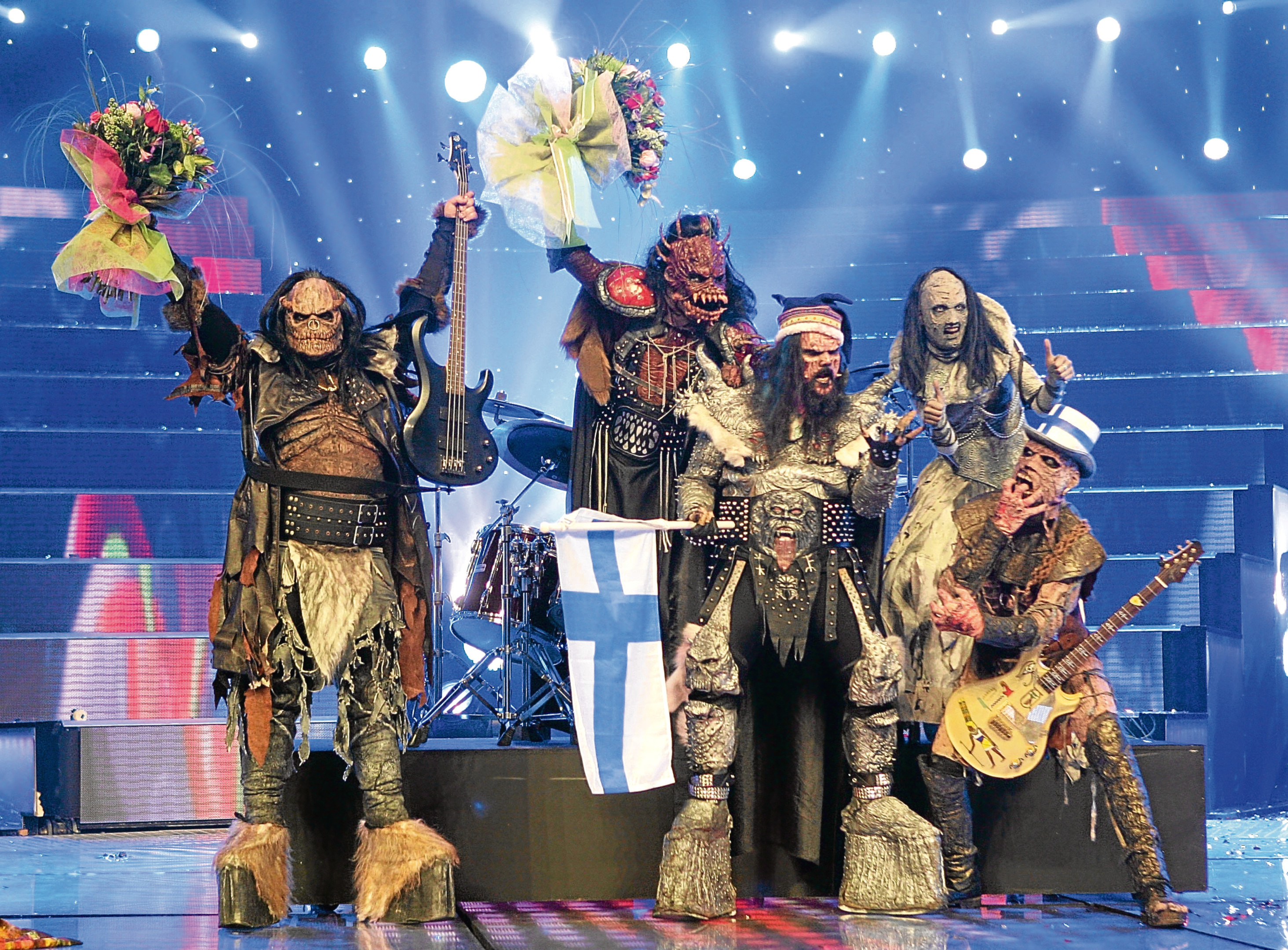
JUST seven countries competed in the very first Eurovision Song Contest.
That came as a surprise to me as I was pretty sure that, even back in 1956, there were more than seven European states.
I mean, there were two Germanys for a start.
But just Belgium, France, Germany, Italy, Luxembourg, the Netherlands and Switzerland contested the prize, with the latter notching a home win in Lugano.
That’s in stark contrast to the 43 countries who’ll be duking it out in Lisbon on May 12, though we’ll not be subjected to all of them on the night now that pre-qualification rounds have been introduced.
Entrants mainly come from active members of the European Broadcasting Union, which created the long-running contest.
But you don’t actually have to be European, just fall within the European Broadcasting Area which also covers the Middle East and North Africa, explaining the intermittent presence of Israel.
Speaking of Israel, their culture minister Yitzhak Navon threatened to resign if “comedy” duo Lazy Bums and their song Shir Habatlanim were allowed to represent the country at the 1987 Contest.
They did, and their flailing dance moves and nonsensical chorus of “Hupa, Hole Hupa, Hupa Hole” propelled them to the giddy heights of eighth.
Predictably, the minister failed to hand in his notice.
Morocco entered once, back in 1980, but came second-last, having only received points from Italy.
Australia were invited to help celebrate the 60th anniversary of the contest in 2015 and though that was meant to be a one-off, they’ve now effectively become a permanent fixture.
And to disprove my earlier point, East Germany never competed.
When the Soviet Union and Yugoslavia broke up at the beginning of the 90s, a flood of new – or independent once more – countries flocked to join.
God knows why, hadn’t they heard of Brotherhood Of Man? Or Lulu’s 1969 entry Boom Bang-a-Bang?
This also permanently skewed the voting as many of them gave the maximum 10 points to Russia purely as a “please don’t invade us” gesture, while Britain’s friendship with the United States and, more recently, Brexit, makes for a predictably dismal night for the UK entry.
That said, only once did we achieve the dreaded “nul points” and that was when the abysmally tuneless Jemini sang their ditty Cry Baby so flat you thought a flatulent camel had wandered into proceedings.
The UK made its debut in the contest’s second year, when the competitors had been told to sing one song instead of the first contest’s two – presumably because the juries couldn’t cope with double the amount of monotonous balladeering as dominated Eurovision until the late 60s.
This year, our entry Storm will be sung by SuRie – nope, me neither – but to be honest how many of the British competitors can you name from the past couple of decades apart from Engelbert Humperdinck and Bonnie Tyler?
If I could give a word of advice to, er, whatsername it’d be to kick off her high heels as there have been five barefoot winners starting with our very own Sandie Shaw (no relation, alas) in 1967.
And we’re one of the three countries to be “third-winning most” – as those language-murdering Americans would have it – with five wins alongside France and, wait for it, Luxembourg.
Before you think that must mean every inhabitant of the tiny Grand Duchy must have had a shot at singing, not one of their winning entries was sung by a native Luxemburger (I think that’s what they’re called).
Sweden are second with six victories and Ireland hold the record with seven wins, including four times in five years (1992-94 and 1996).
This was what the sitcom Father Ted was lampooning when one classic episode saw Ireland deliberately putting in a dismally bad entry – My Lovely Horse sung by Fathers Ted Crilly and Dougal Maguire – to avoid the cost of hosting yet another contest.
And it was hard to see Ireland’s 2008 entry as anything other than art imitating life. TV presenter Dustin the Turkey – yes, really – was an irritating puppet singing an irritating song that basically mocked everything Eurovision stood for.
It was titled Irlande Douze Points but, as if to prove the Eurovision peeps could take a joke, the foul fowl earned many more than that.
There have been 62 contests but 65 winners, because in 1969 four acts ended up with the same points tally and there was no system in place to separate them.
Now, if there’s a tie the country with points from most countries wins.
“Norway, nul points” became a song contest cliché but, like all clichés, it contained a kernel of truth as those Nordics have come dead last a record nine times.
Staying in Scandinavia, Finland had to wait 41 years from their debut in 1961 to win their first contest – 2006’s triumph by bizarre heavy metal band Lordi, orc outfits and all – and had only received 12 votes before the 2006 win, none since 1977.
We all have our favourite Eurovision moments and mine came in 1979.
Only those wacky West Germans could dream up a disco track inspired by a Mongol warlord and so we were treated to the spectacle of Dschingis Khan donning full Mongol warrior costume and spouting lyrics about “nobody resisting his strength”.
I’d love to have heard what Terry Wogan or Graham Norton made of that.

Enjoy the convenience of having The Sunday Post delivered as a digital ePaper straight to your smartphone, tablet or computer.
Subscribe for only £5.49 a month and enjoy all the benefits of the printed paper as a digital replica.
Subscribe